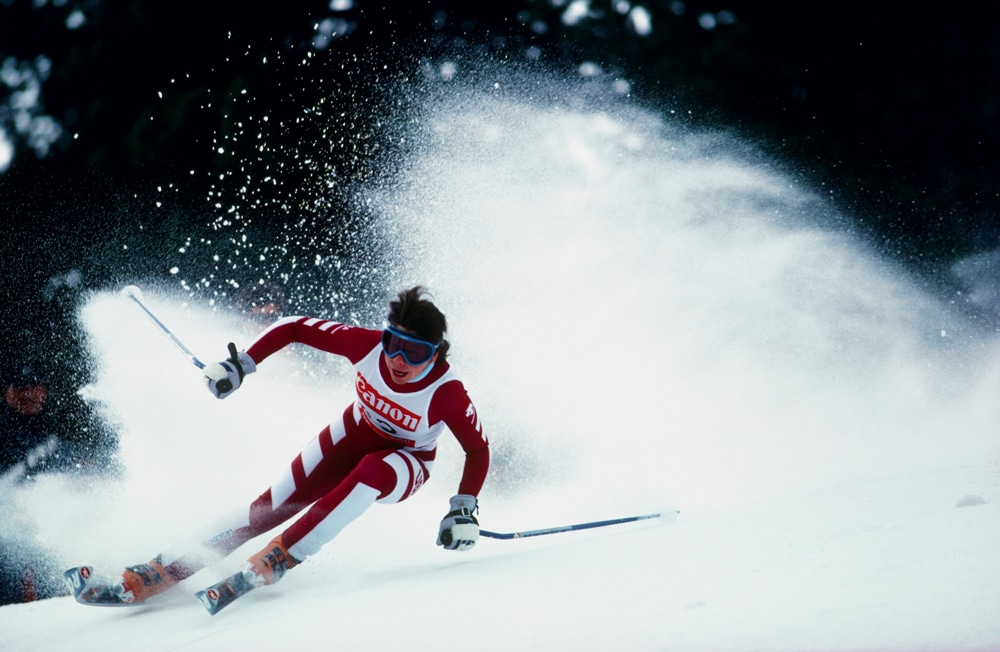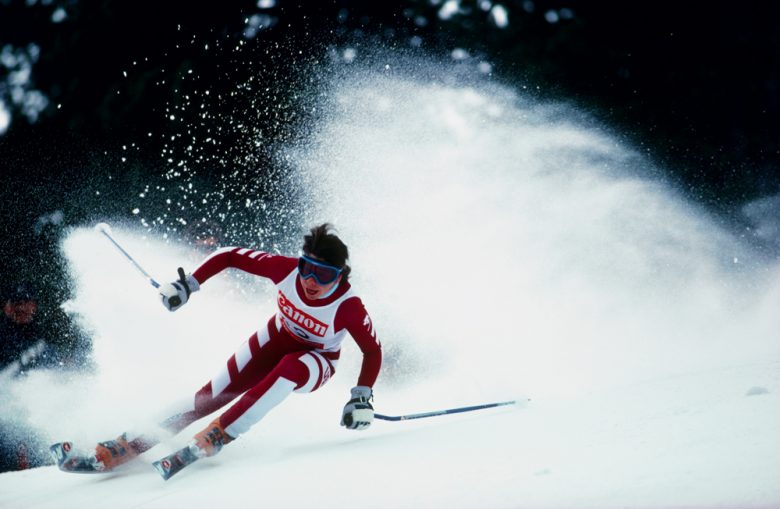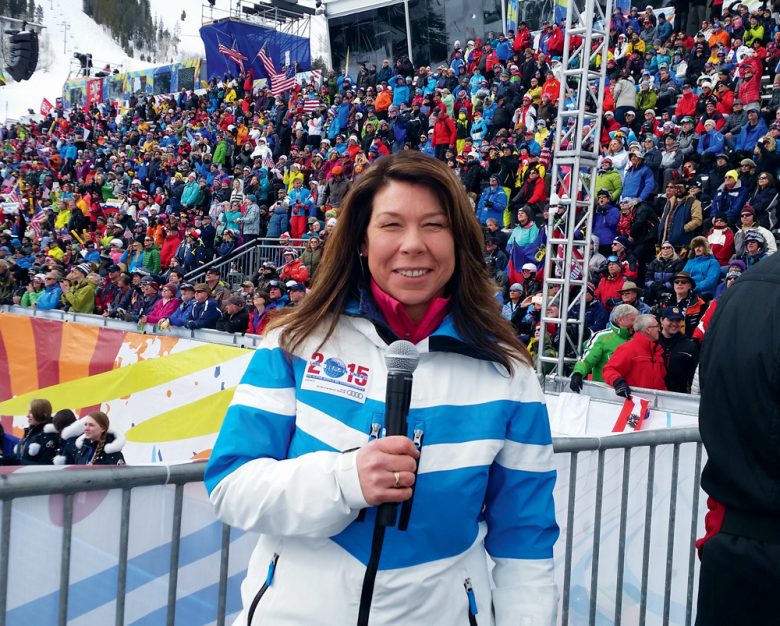5 Questions with Diann Roffe
Catching up with two-time Olympic ski racer and featured Weekends with Yankee guest Diann Roffe.

Diann Roffe on the slopes in 1985, and (below) on the scene as a commentator at the 2015 Vail World Championships.
Photo Credit : Lori Adamski-Peek
Photo Credit : Lori Adamski-Peek

Photo Credit : Courtesy of Diann Roffe
Q. New England is populated with so many small, family-oriented ski mountains. What role do these places play in helping to groom future Olympians?
A. It’s the culture. They keep the sport incredibly simple, from the parking, to the lodge with the $1 hot dogs, to the fact that these small ski areas allow kids to roam free. They allow kids to just play in a safe environment. There’s also time on snow. When your small ski area is accessible and you live close by, why wait in lift lines at the bigger ski areas when you can go at night or after school with your friends and be skiing most of the time? You might get in 30 runs. So you’re constantly balancing on your skis and playing and moving around, getting on the lift and off the lift. All that time on your skis and on the snow is just an incredible advantage.
Q. What about New England’s often-icy terrain? Does that give its skiers a competitive advantage?
A. Absolutely. There’s a constant battle at ski areas to provide perfect snow, but at the World Cup race you want the conditions to be as fair as possible, which means that they need to be as hard as possible for every athlete, from number 1 to number 100. Eastern ski racers are familiar with those conditions—that’s what they’ve grown up skiing on.
Q. Vermont’s Killington Ski Resort has hosted the past several Women’s World Cup races and is arguably one of New England’s signature ski destinations. What accounts for that?
A. It’s not just an iconic New England ski area—it’s a prime spot for the sport. Both my parents were ski instructors, and we’d make a trek to Killington every spring for a family trip. We’d ski the entire mountain. It’s a big mountain that gets cold early, so you can ski it early in the season. And it’s accessible to people in New York and Boston, so they can come and watch the big races. You’re not going to get that in Colorado, where you have to deal with the whole I-70 nightmare.
Q. Skiing is such an inter-generational sport. You were trained by some of the best coaches in the world, and now you’re paying that forward. What has that meant to you?
A. It’s been awesome. You just see kids having so much fun in such a positive environment. In so many ways we’ve lost that understanding that children really want to learn. They are sponges, and learning a sport that’s incredibly fun and social and hard is just a wonderful thing for a child’s experience. It teaches them they can fail and, in fact, they have to fail to learn. Sure, they might fall every day for two weeks but then they get to the point where they are standing up and getting faster. Being able to coach a child through that is so rewarding.
Q. When you’re watching these young guns at a World Cup or another big race, is there any part of you that wants to get out there with them?
A. [Laughs.] No. I’m probably half the skier I was—but I don’t care.
Ian Aldrich
Ian Aldrich is the Senior Features Editor at Yankee magazine, where he has worked for more for nearly two decades. As the magazine’s staff feature writer, he writes stories that delve deep into issues facing communities throughout New England. In 2019 he received gold in the reporting category at the annual City-Regional Magazine conference for his story on New England’s opioid crisis. Ian’s work has been recognized by both the Best American Sports and Best American Travel Writing anthologies. He lives with his family in Dublin, New Hampshire.
More by Ian Aldrich

